 W
WWilliam Wirt Adams (1819–1888) was a banker, planter, state legislator, and a Brigadier General in the Confederate States Army.
 W
WJames Lusk Alcorn was a governor and a U.S. senator during the Reconstruction of his adopted state of Mississippi. A moderate Republican, Alcorn engaged in a bitter rivalry with Radical Republican Adelbert Ames, who defeated him in the 1873 Mississippi gubernatorial race. He briefly served as a brigadier general of Mississippi state troops in Confederate Army service during the early part of the American Civil War. Among the Confederate generals who joined the post-Civil War Republican Party, only James Longstreet had been of higher rank than Alcorn.
 W
WWilliam Edwin Baldwin was a Confederate Army officer during the American Civil War.
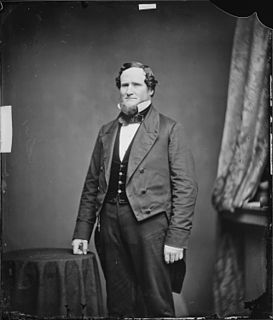 W
WWilliam Barksdale was a lawyer, newspaper editor, US Representative, slaveholder, and Confederate general in the American Civil War. A staunch secessionist, he was mortally wounded during the Battle of Gettysburg while he led his brigade's attack on Union forces not far from Cemetery Ridge.
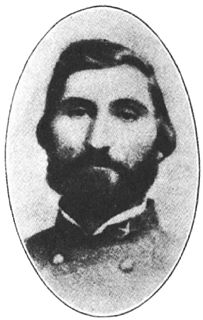 W
WSamuel Benton (1820–1864) was an American attorney, newspaper publisher and politician. He served as a colonel in the Confederate States Army during the American Civil War. He was promoted to brigadier general but died two days later before the notification of his promotion reached him.
 W
WWilliam Lindsay Brandon was a medical doctor, state legislator, planter and military officer best known for having served as a general in the Confederate States Army during the American Civil War. Brandon was born c. 1801–1802, though his exact birthdate is indeterminate.
 W
WWilliam Felix Brantley was an American lawyer and soldier. He served as a Confederate general in the American Civil War, mainly serving in the Western Theater during the conflict.
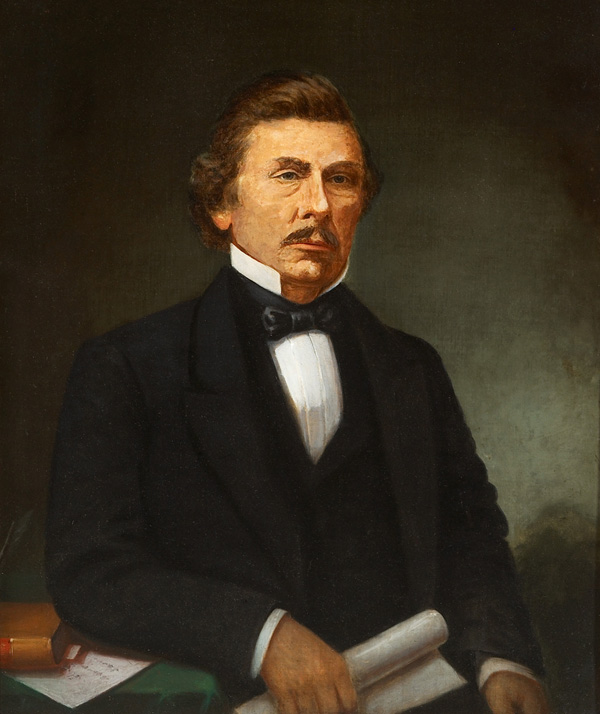 W
WWalker Brooke was an American politician who served as a Deputy from Mississippi to the Provisional Congress of the Confederate States from 1861 to 1862. He was also a U.S. Senator from 1852 to 1853, representing the state of Mississippi.
 W
WAlbert Gallatin Brown was Governor of Mississippi from 1844 to 1848 and a Democratic United States Senator from Mississippi from 1854 to 1861, when he withdrew during secession.
 W
WErasmus R. Burt was an American physician, politician, and soldier. He served as the State Auditor of Mississippi, and was then a member of the Mississippi House of Representatives. During the American Civil War, he was a colonel in the Confederate States Army and was killed in action at the Battle of Ball's Bluff in Northern Virginia. He was known as “the Father of the Deaf and Dumb Institute of Mississippi”.
 W
WBeverly Francis Carradine was an American Methodist minister and a leading evangelist for the holiness movement. He was a productive author, writing primarily on the subject of sanctification. The patriarch of the Carradine family, he was the grandfather of actor John Carradine and great-grandfather of actors David, Keith, and Robert Carradine.
 W
WJames Ronald Chalmers was an American lawyer and politician, a state senator in Mississippi and United States Congressman for several terms from the state's 6th congressional district, beginning in 1876.
 W
WCharles Clark was Governor of Mississippi from November 16, 1863 until May 22, 1865.
 W
WDouglas Hancock Cooper was an American politician, a soldier, an Indian Agent in what is now Oklahoma, and a Confederate general during the American Civil War.
 W
WCharles Gustavus Ulrich Dahlgren was a brigadier general of Mississippi State Troops with allegiance to the Confederate States of America during the American Civil War. He commanded the 3rd Brigade of the Mississippi Militia, before a dispute with the President of the Confederate States of America, Jefferson Davis, over transfer of the state troops to the Confederate States Army cost him his career.
 W
WJefferson Finis Davis was an American politician who served as the president of the Confederate States from 1861 to 1865. As a member of the Democratic Party, he represented Mississippi in the United States Senate and the House of Representatives before the American Civil War. He previously served as the United States Secretary of War from 1853 to 1857 under President Franklin Pierce.
 W
WMajor-General Joseph Robert Davis was an American politician and lawyer who served as the commanding general of the Mississippi National Guard from 1888 to 1895. During the American Civil War, he served as aide-de-camp to the President of the Confederate States and commanded a brigade in the Army of Northern Virginia. He is best known for his role at Gettysburg. A member of the Democratic Party, he represented Madison and Scott counties in the Mississippi Senate from 1860 to 1861.
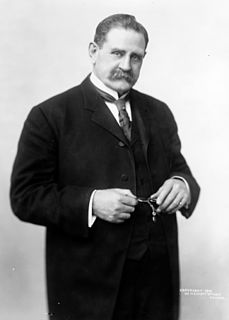 W
WJacob McGavock Dickinson was United States Secretary of War under President William Howard Taft from 1909 to 1911. He was succeeded by Henry L. Stimson. He was an attorney, politician, and businessman in Nashville, Tennessee, where he also taught at Nashville University. He came to have a national role after moving to Chicago, Illinois, in 1899.
 W
WWilliam Henry Elder was a U.S. archbishop. He served as the Bishop of Natchez from 1857 to 1880 and the Archbishop of Cincinnati between 1883 and 1904.
 W
WWilliam Clark Falkner was a soldier, lawyer, politician, businessman, and author in northern Mississippi. He is most notable for the influence he had on the work of his great-grandson, author William Faulkner.
 W
WWinfield Scott Featherston "Old Swet" was an antebellum two-term U.S. Representative from Mississippi and a brigadier general in the Confederate States Army during the American Civil War. He was later a state politician and a circuit court judge.
 W
WCatherine Sarah "Kate" Ferguson, better known by her pen name "Kate Lee Ferguson," was an American novelist, poet, and composer best known as the author of Cliquot (1889) and Little Mose (1891).
 W
WJohn Calvin Fiser was an American merchant and soldier. He served as an officer in the Confederate Army during the American Civil War, fighting in both the Eastern as well as the Western theaters. Fiser was seriously wounded five times in the conflict, losing an arm in 1863's Battle of Fort Sanders, and he was appointed a general officer late in the war; however, the appointment was never confirmed by the Confederate Senate. Afterward he returned to his business interests and was active in Confederate veterans organizations.
 W
WWilliam Francis Fitzgerald was an American jurist who served on the Federal bench as an Associate Justice of the Arizona Territorial Supreme Court, as well as at the state level as an Associate Justice of the California Supreme Court. Other positions he held include California Attorney General and judge of the Superior Court of Los Angeles County.
 W
WWilliam Christopher Friley, known as W. C. Friley, was a Southern Baptist clergyman and college president. He was from 1892 to 1894 the first president of Hardin-Simmons University in Abilene, Texas, and the second president from 1909 to 1910 of Louisiana College in Pineville, Louisiana. The two assignments were fifteen years apart.
 W
WJames Zachariah George was an American lawyer, writer, U.S. politician, Confederate politician, and military officer. He was known as Mississippi's "Great Commoner."
 W
WSamuel Jameson Gholson was a United States Representative from Mississippi, a United States District Judge of the United States District Court for the Northern District of Mississippi and the United States District Court for the Southern District of Mississippi and a General in the Confederate States Army.
 W
WJames Gordon was an American planter, writer, former Confederate officer and politician from Okolona, Mississippi. He was a United States Senator for eight weeks, from December 27, 1909 to February 22, 1910.
 W
WDaniel Chevilette Govan was an American miner, planter, and soldier. He served as a Confederate general during the American Civil War, prominent in campaigns and battles in the Western Theater.
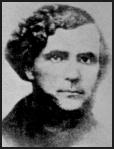 W
WRichard Griffith was a brigadier general in the Confederate States Army during the American Civil War. He was mortally wounded at the Battle of Savage's Station during the 1862 Peninsula Campaign. He was one of a number of Confederate generals who were born in the North in Pennsylvania.
 W
WWilliam H. Hardy (1837−1917) founded the cities of Hattiesburg, Mississippi, Laurel, Mississippi, and Gulfport, Mississippi.
 W
WGeorge Emrick Harris was a U.S. Representative from Mississippi.
 W
WNathaniel Harrison Harris was a Confederate States Army brigadier general during the American Civil War.
 W
WBenjamin Grubb Humphreys was an American politician from Mississippi. He was a general in the Confederate States Army during the American Civil War and served as Governor of Mississippi from 1865 to 1868, during Reconstruction.
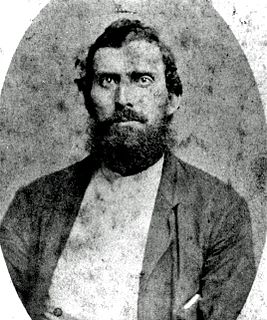 W
WNewton Knight was an American farmer, soldier and Southern Unionist in Mississippi, best known as the leader of the Knight Company, a band of Confederate army deserters who resisted the Confederacy during the Civil War. Local legends tell of Knight and his men forming the "Free State of Jones" in the area in and around Jones County, Mississippi, at the height of the war. The nature and extent of the Knight Company's opposition to the Confederate government is disputed among historians. After the war, Knight joined the Republican Party and served in Mississippi's Reconstruction government as a deputy US Marshal.
 W
WLucius Quintus Cincinnatus Lamar II was an American politician, diplomat, and jurist. A member of the Democratic Party, he represented Mississippi in both houses of Congress, served as the United States Secretary of the Interior, and was an Associate Justice of the Supreme Court of the United States. He also served as an official in the Confederate States of America.
 W
WRobert Lowry was an American politician and lawyer who served as the 32nd governor of Mississippi from 1882 to 1890. Before entering politics, he was a senior officer of the Confederate States Army who commanded infantry in the Western Theater of the American Civil War.
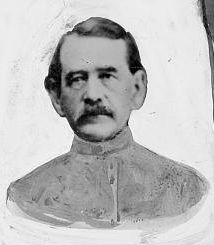 W
WWilliam Thompson Martin was an American lawyer and politician who became a Confederate States Army major general during the American Civil War. He later served in the Mississippi state senate, and was a delegate to four Democratic National Conventions. Martin was the president of the Natchez, Jackson, and Columbus Railroad, of which he oversaw the construction in 1884.
 W
WEvander McNair was a brigadier general in the Confederate States Army during the American Civil War.
 W
WJohn Jones McRae was an American Democratic politician.
 W
WFrank Alexander Montgomery was an American politician best known for his memoir of life as a Confederate cavalry officer in the Western Theater of the American Civil War (1861–1865) called Reminiscences of a Mississippian in Peace and War (1901).
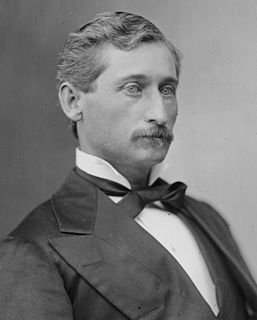 W
WHenry Lowndes Muldrow was an American politician who served as First Assistant Secretary of the Interior in the first Cleveland administration. Prior to this he served as U.S. Representative from Mississippi's 1st congressional district, a member of the Mississippi House of Representatives and as an officer of the Confederate States Army who commanded a cavalry regiment in the Western Theater of the American Civil War.
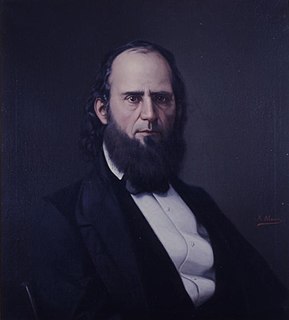 W
WJohn Jones Pettus was an American politician and lawyer who served as the 23rd Governor of Mississippi, from 1859 to 1863. Prior to being elected in his own right to full gubernatorial terms in 1859 and 1861, he served as acting governor from January 5 to 10, 1854, following the resignation of Henry S. Foote. A member of the Democratic Party, Pettus had previously been a Mississippi state representative, a member and president of the Mississippi Senate. He strongly supported Mississippi's secession from the Union in 1861 and sought cooperation with the Confederate States Government.
 W
WJames Phelan Sr. was a senator in the Confederate Congress during the American Civil War from the state of Mississippi.
 W
WCarnot Posey was a Mississippi planter and lawyer, and a Confederate general in the American Civil War. He was mortally wounded at the Battle of Bristoe Station.
 W
WHiram Rhodes Revels was an American politician, minister in the African Methodist Episcopal Church, and a college administrator. Born free in North Carolina, he later lived and worked in Ohio, where he voted before the Civil War. Elected by the Mississippi legislature to the United States Senate as a Republican to represent Mississippi in 1870 and 1871 during the Reconstruction era, he was the first African American to serve in either house of the U.S. Congress.
 W
WWilliam Price Sanders was an officer in the Union Army in the American Civil War who died at the Siege of Knoxville.
 W
WClaudius Wistar Sears was a United States Army officer, an educator, and a Confederate general during the American Civil War.
 W
WJacob Hunter Sharp was a Mississippi lawyer, newspaperman and politician, as well as a general in the Confederate States Army during the American Civil War. He played a prominent role of several major engagements of the Army of Tennessee in the Western Theater, including the Atlanta Campaign in 1864 where he was several times recognized by his commanders and peers for bravery in combat.
 W
WPeter Burwell Starke was an American politician who served as a Brigadier-General in the Provisional Army of the Confederate States.
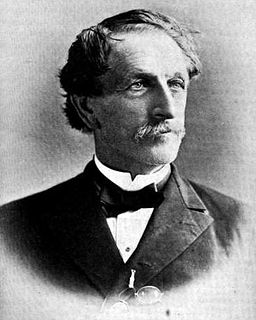 W
WThomas Ringland Stockdale was a U.S. Representative from Mississippi.
 W
WJohn Marshall Stone was an American politician from Mississippi. A Democrat, he served longer as Governor of that state than anyone else, from 1876 to 1882 and again from 1890 to 1896. He approved a new constitution in 1890 passed by the Democratic-dominated state legislature that disfranchised most African Americans, excluding them from the political system. They were kept out for nearly 70 years.
 W
WWilliam Feimster Tucker was a brigadier general in the Confederate States Army during the American Civil War.
 W
WEarl Van Dorn was a United States Army officer and great-nephew of Andrew Jackson, fighting with distinction during the Mexican–American War, against several tribes of Native Americans, and in the Western theater of the American Civil War as a Confederate major general.
 W
WWilliam Stephen Walker was a Confederate States Army brigadier general during the American Civil War. He was born in Pittsburgh, Pennsylvania but was raised by Robert J. Walker, his uncle, who was a Secretary of the Treasury and U.S. Senator. Walker served as a first lieutenant in the United States Army during the Mexican–American War from 1847 to 1848. He was discharged in 1848. Walker rejoined the army as captain in the 1st U.S. Cavalry Regiment on March 3, 1855 and served until he resigned on May 1, 1861. Walker was wounded in the left arm and lost his left foot during the Battle of Ware Bottom Church during the Overland Campaign. After the war, he lived at Atlanta, Georgia.
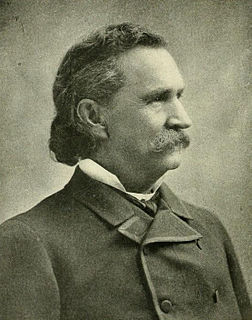 W
WEdward Cary Walthall was a general in the Confederate States Army during the American Civil War and a postbellum United States Senator from Mississippi.
 W
WFrancis Shelley "Frank" White was a U.S. senator from the state of Alabama. Born in Noxubee County, Mississippi, he became a lawyer and served in the Civil War. He was elected to the Mississippi House of Representatives and then moved to Birmingham, Alabama to practice law. He was elected to fill the term left by the death of Joseph F. Johnston and served from May 11, 1914 to March 4, 1915. He did not run for reelection. His interment was located in Birmingham's Elmwood Cemetery.